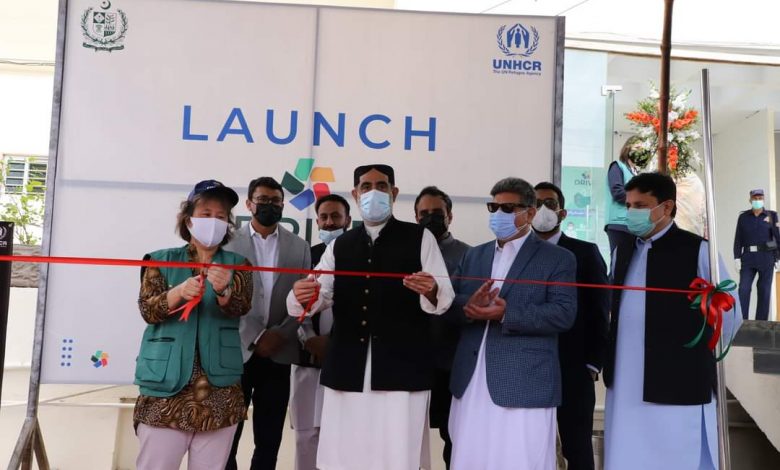Nationwide verification exercise for 1.4 million Afghan refugees launched

Islamabad: The Government of Pakistan, with the support of UNHCR, has launched a nationwide verification exercise for 1.4 million Afghan refugees during which new smartcards will be issued.
The Documentation Renewal and Information Verification Exercise, or DRIVE for short, was inaugurated at a ribbon-cutting ceremony in Islamabad by the Federal Minister for SAFRON, Mehboob Sultan. The UNHCR Representative, Noriko Yoshida, and the Chief Commissioner for Afghan Refugees, Saleem Khan, were also present on the occasion.
During the six-month exercise, registered Afghan refugees who currently hold Proof of Registration (PoR) cards will be provided with new smartcards.
“The DRIVE exercise is a leap forward for everyone,” Yoshida said, welcoming its launch. “This step will allow refugees to have better, faster and safer access to services, including schools, hospitals and banks.”
Yoshida added that in addition to verifying existing data, the exercise will record Afghan refugees’ skill sets, level of education, socio-economic circumstances, allowing better targeted health, education and livelihood support in Pakistan and Afghanistan.
“Pakistan has been hosting Afghan refugees for four decades, and a lot has changed since the last verification exercise 10 years ago. It’s crucial that we update the data of Afghan refugees to understand their situation better,” said the Federal Minister for SAFRON.
Sultan added, “As the country hosting one of the most protracted refugee situation in the world, Pakistan has strived to play its part in assisting and protecting refugees. It’s important the international community also continue to come forward, and share the responsibility and help find solutions.”
The Federal Minister for SAFRON urged POR cardholders to participate fully in this exercise. He also requested that they take all precautionary measures and observe COVID-19 protocols.
Six hundred male and female staff – a combination of government and UNHCR – will be working at some 35 DRIVE verification sites around the country, and using mobile registration vehicles, to support refugees throughout the exercise.
Measures are in place at all DRIVE sites to mitigate COVID-19 risks through enhanced hygiene, physical distancing and the scheduling of set numbers of appointments each day.





